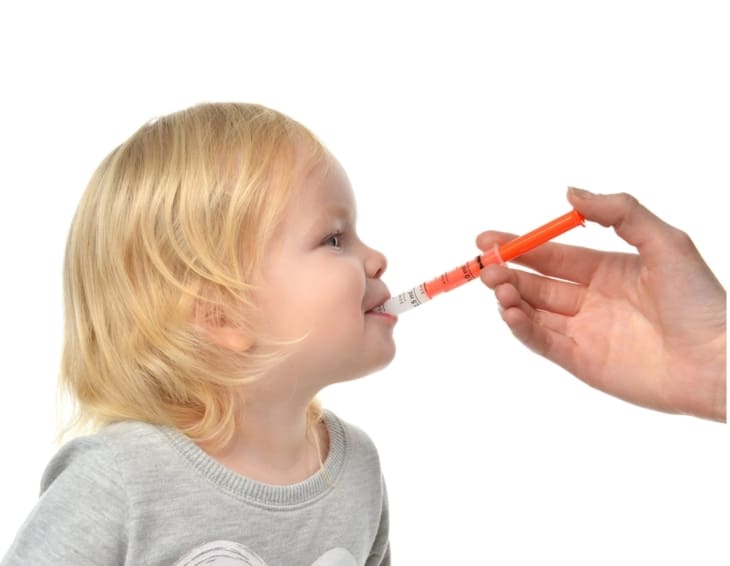
When your young child has a cough or cold, you want to make them feel better. But over-the-counter (OTC) cold medicines are not the answer. Doctors do not recommend giving children younger than 6 years old OTC medicines for cough and cold. These can lead to dangerous consequences. This includes accidental poisoning and incorrect dosing. OTC medicines have not been proven effective to relieve symptoms in children.
There are four types of OTC medicines to treat coughs and colds:
- Cough suppressant (main ingredient is dextromethorphan)
- Cough expectorant (main ingredient is guaifenesin)
- Decongestant (main ingredient is pseudoephedrine or phenylephrine)
- Certain antihistamines
Path to improved well being
There are solutions for treating a young child’s cough and cold symptoms. These include:
- Spraying the inside of your child’s nose with non-medicated saline drops. This clears the mucous from your child’s nose. It makes it easier for your child to blow their nose, too.
- Drinking plenty of fluids. This will hydrate your child and thin the mucous in their nose and throat. Thinner mucous makes your child more comfortable.
- Using a humidifier in your child’s room. This creates added moisture to make it easier for your child to breathe.
- Turning your bathroom into a steam room. Close the door to the bathroom and turn the shower on hot. Then, sit outside the shower with your child for about 15 minutes.
- Elevating your child’s head when he or she is resting. This position prevents the mucous from collecting in your child’s nose or throat.
- Seeing your child’s doctor for other recommendations. This is especially important if your child has a wheezing cough.
Things to consider
OTC cough and cold medicines are not always safe or even effective for children. Do not offer your child OTC medicine unless your doctor tells you to do so. There are risks for serious consequences for some children who are given these OTC medicines. These may include:
- Accidental poisoning. Children see the colorful bottles and may want to drink the contents. Do not leave child-proof caps off the bottle. Make sure all caps are tightly secured.
- Mixing brands. Over-the-counter cough and cold medicines have different ingredients. Mixing brands could be deadly. For example, you should not mix a cough suppressant and a cough expectorant.
- Slowed breathing. Some amount of coughing is good. This is what breaks up the mucous. Too much cough suppressant can slow a young child’s breathing and prevent them from “good coughs.” This can lead to pneumonia.
- Incorrect dosing. Be sure to read and follow the directions on the box. Give your child the amount listed on the box. Giving your child more will not help. It is the same as overdosing. Also, use the spoon, dropper or cup that is provided. This will help with proper dosing. It should be labeled as teaspoons (tsp) and milliliters (mL). Directions may say to give to your child “every 6 hours.” This means the medicine can be taken 4 times a day. Do not wake your child up during the night to take medicine.
- Mistaking adult medicine for children’s medicine. Most over-the-counter medicine is sold in adult or children’s form. If you give your child adult medicine, you could be over-medicating them.
Keep a list of all OTC medicines you have given your child. Record the dose and time of the dose. This will be important information for a doctor if your child has a bad reaction to the medicine.
Questions to ask your doctor
- I’ve tried everything and my child is still miserable. What else can I do?
- If my child is old enough to eat hard candy, are cough drops OK to use?
- What if fluids are not an option for my child?
![]()
Copyright © American Academy of Family Physicians
This information provides a general overview and may not apply to everyone. Talk to your family doctor to find out if this information applies to you and to get more information on this subject.







